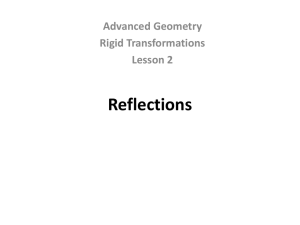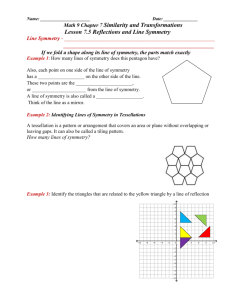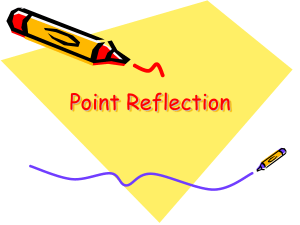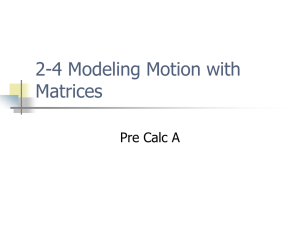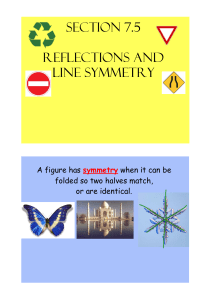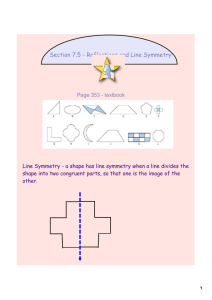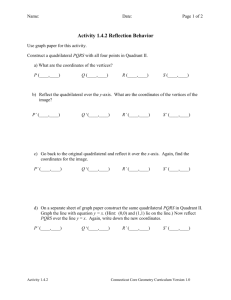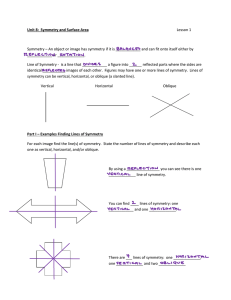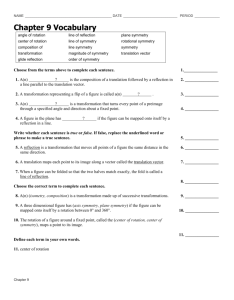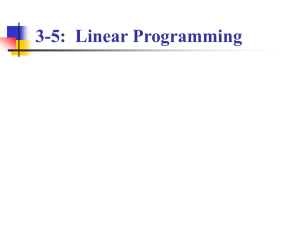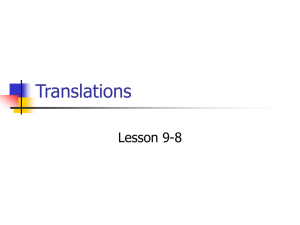Translations in the Coordinate Plane
advertisement
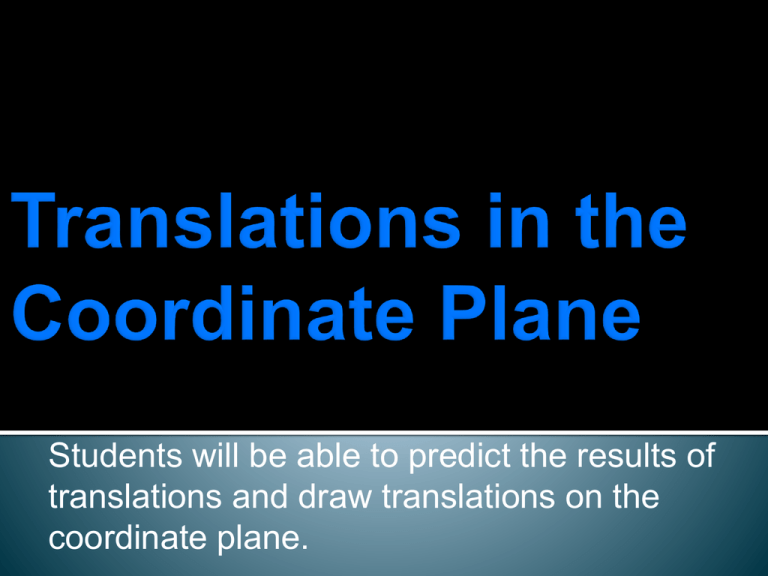
Students will be able to predict the results of translations and draw translations on the coordinate plane. http://www.youtube.com/watch?v=XdjH_EW hCZ0 Transformation- maps one figure onto another Translation- the motion of moving a figure without turning it Congruent Figures- same size and shape, and the corresponding sides and angles have equal measures Triangle TUV has vertices T(6,-3), U(-2,0), and V(-1,2). Find the vertices of triangle T’U’V’ after a translation of 3 units right and 4 units down. Then graph the figure an its translated image. Students will be able to predict the results of a reflection and graph reflections on a coordinate plane. • Scientists have determined that the human eye uses symmetry to see. It is possible to understand what you are looking at even if you do not see all of it. • List all of the capital letters of the alphabet that look exactly the same when folded across a vertical line. Line Symmetry: Figures that match exactly when folded in half have line symmetry. Line Symmetry: Each fold line is called a line of symmetry. • Determine whether each figure has line symmetry. If so, copy the figure and draw all lines of symmetry. • Copy each figure. Draw the resulting figure when each figure is lipped over line. 1. 2. Does the size and shape remain the same on either side of the line of symmetry? What do you notice about the distance from the points to the line of symmetry? Reflection- A mirror imaged produced by flipping a figure over a line Line of Reflection- The line in which an image is flipped to form a reflection Image- the location or position of a figure after a transformation 1. 2. 3. Count the units between a point and the line of reflection. For each point (vertex), plot a point an equal distance away from the line of reflection on the reflected side Connect the vertices to form the reflected image. Reflect the image over the y-axis • Reflect the figure using the x axis as a line of reflection. X (4, -4) Y (-2,-3) Z (2, -1) What do you notice about the old coordinates and the new coordinates? Is there a pattern? Graph triangle FGH with vertices F (1,-1) G (5, -3), H (2, -4). Graph the image of triangle FGH after the reflection over the y axis. Compare the new coordinates to the old coordinates to find your rule. X-Axis The x values remain the same, the y value changes sign Y-Axis The y values remain the same, the x value changes the sign. • Graph the figure with the given vertices. Then graph the image of the figure after a reflection over the x-axis. Then graph the image after it has been translated up 2 units and right 3. **Be sure to write the coordinates of the image’s vertices.
